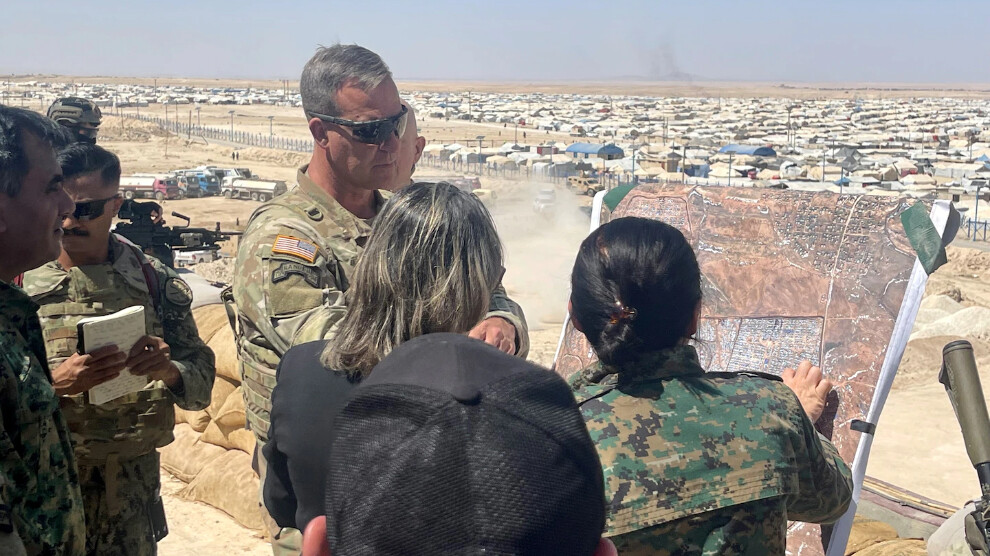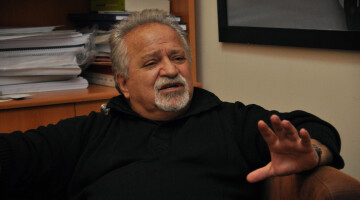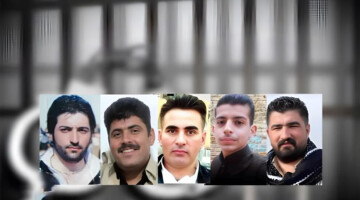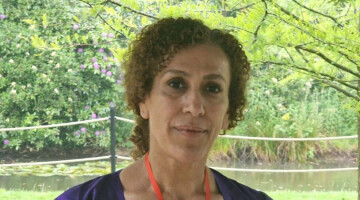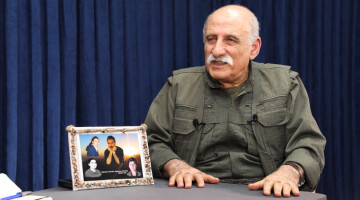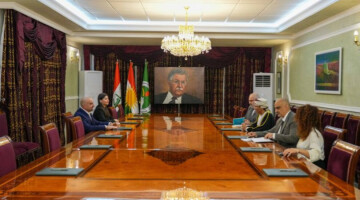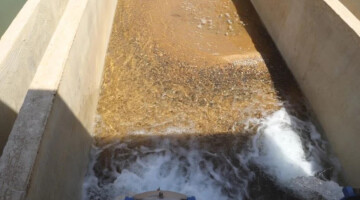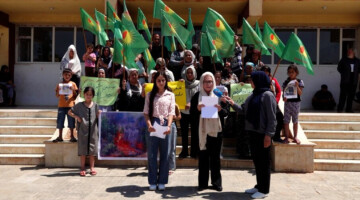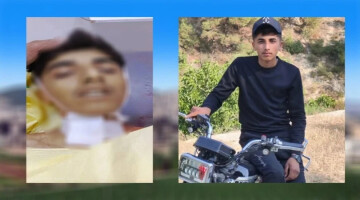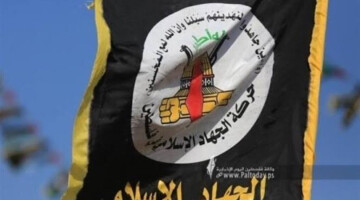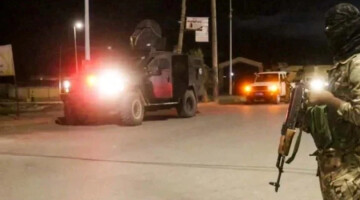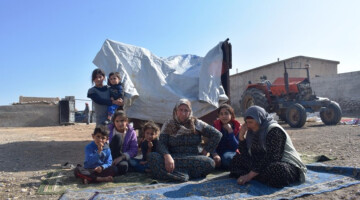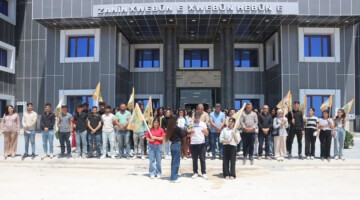A joint delegation of the Syrian Democratic Forces (SDF), led by General Commander Mazlum Abdi, and the US Central Command (CENTCOM), led by General Michael "Erik" Kurilla, visited Camp Hol on Friday to get an overview of the situation in the reception and detention camp near Hesekê and the ongoing Operation Humanity and Security against ISIS cells there.
The delegation was briefed on details of the security situation and the intelligence gained during the operation on the structures of the Islamic State (ISIS) terrorist militia in the camp. The coordinators of the operation said that ISIS is trying to gain control of the camp and is pressuring and killing residents. ISIS is preparing for a second caliphate and is using various methods to raise a new Islamist indoctrinated generation and to recruit new members by taking advantage of the humanitarian situation in the camp.
In the operation coordinated by the Internal Security Forces (Asayish) and supported by the Syrian Democratic Forces (SDF), five women have been freed from ISIS captivity so far. Over 150 suspected ISIS members have been arrested, including dozens of women. The security forces have seized countless weapons and discovered underground bunkers. Two SDF fighters were killed when they prevented an escape attempt by a seven-member ISIS cell.
After the visit to Camp Hol, US General Kurilla released a written statement offering condolences to the families of the two SDF fighters killed in a firefight with ISIS in the al-Hol camp on September 8th.
The statement by Kurilla said the following:
“The SDF mission to clear ISIS from the camp continues. This is a critical, wide-ranging operation which will make the camp safer for all residents. We’ve already seen ISIS members holding women and girls enslaved in chains inside the camp, torturing camp residents, and seeking to spread their vile ideology. Most of the residents seek to escape ISIS, but ISIS sees the camp as a captive audience for its message and recruitment efforts. It is therefore urgent that we repatriate residents back to their countries of origin and rehabilitate them if needed.
We continue working with the SDF to address both security at the camp as well as the humanitarian conditions. Working together on al-Hol is an extension of our ongoing cooperation to ensure the enduring defeat of ISIS. While this camp represents a real threat to the region, it also represents a humanitarian catastrophe. I spoke with several members from the camp today; these discussions reinforced the severity of the situation.
With approximately 56,000 residents – more than 90 percent of them women and children – living in tents here, the camp is a flashpoint of human suffering. The site reached 98 degrees while we were out here today, and it gets much hotter. There is little escape from the heat and limited access to running water.
ISIS seeks to exploit these horrific conditions. With approximately 80 births in the camp each month, this place is a literal breeding ground for the next generation of ISIS. Approximately 70 percent of the population is under the age of 12. These young people are vulnerable to radicalization given their very poor quality of life.
Most residents of the camp reject ISIS. Many want to contribute to society. Many wish to return to their homelands, to reenter the workforce and return their children to school.
There is no military solution to the threat posed by the al-Hol camp. I am certain of that. The most durable solution is for countries of origin to repatriate, rehabilitate, and reintegrate their citizens. Approximately half of the residents of al-Hol are originally from Iraq. I commend the real progress Iraq has demonstrated to date in repatriating its nationals. Although substantial, clearly there’s a need to accelerate this progress. Should Iraq repatriate, rehabilitate, and reintegrate its citizens, the problem would immediately become much more manageable.
The residents I spoke with arrived at the camp in 2017 – prior to the large-scale arrival of ISIS in 2019. They initially went to al-Hol to escape ISIS. They seek to protect their families and to resume a peaceful, safe life with their children.
The people I spoke with here are just that: people. They want to raise their children in peace. There are women and children who can be returned to society. They can and want to be productive.
This is a situation and a looming catastrophe that requires an international solution. To do so requires the global community viewing this problem with empathy.
From the perspective of the United States, this is a situation that requires a whole-of-government approach. I am in dialogue across the US Government to improve security and humanitarian conditions at the camp.”

